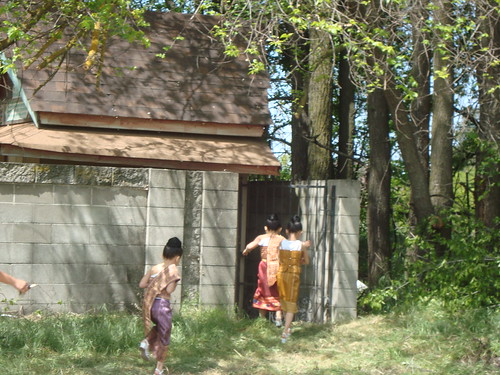
There are interesting conclusions of the report Lao American non-profit organizations could benefit from. A legitimate question is, do our organizations have the ability to advocate effectively with funders to design evaluation models that align with these recommendations?
The 12-page report, Priorities for a New Decade: Making (More) Social Programs Work (Better) recommends fully engaging nonprofit practitioners as partners in the evaluation efforts. Public/Private Ventures advocates approaches that reflect a deep understanding of local circumstances and constraints. The report offers guidelines for evaluation and scaling that support program quality and performance.
In many cities where there are still functioning non-profits addressing Lao American needs, we see the non-profits are serving as subordinates, implementing contracts and sub-contracts, rather than being brought to the table as partners and allies. We rarely see effective partnerships with a shared vision for constructive, holistic community development. We can often spot conflicts between transparency and transformation, and challenges of developing genuine intercultural sensitivity and cross-cultural exchange.
The Public/Private Ventures report comes about because of a belief that the current methods to evaluate the effectiveness of non-profit programs often fail to provide enough information on how to improve the performance of a program or how to scale-up an effective program.
Several projects we've seen within the Lao American community across the country could definitely have benefited from these recommendations. It might have led to better results and even widespread adoption of the successful elements of their efforts. But as it is, it's hard to point to many examples from 2010-2011 where we see other communities moving to adopt similar initiatives in their states and cities effectively.
Among recommendations the Public/Private Ventures report suggested: the establishment of clearer guidelines on how evaluation can meet the particular needs and contexts of different kinds of programs. It was important to forge closer working partnerships among program practitioners, researchers, and funders; There is a need to involve practitioners in the design of evaluation and data collections systems; We also need to emphasize collaboration among practitioners, evaluators, and funders to develop program assessment models and evaluate organizational capacity; and significantly, we need to push funders to make a greater effort to translate specific evaluation findings into practical lessons.
But what are some ways you think we need to consider to improve our evaluation and implementation process?
No comments:
Post a Comment